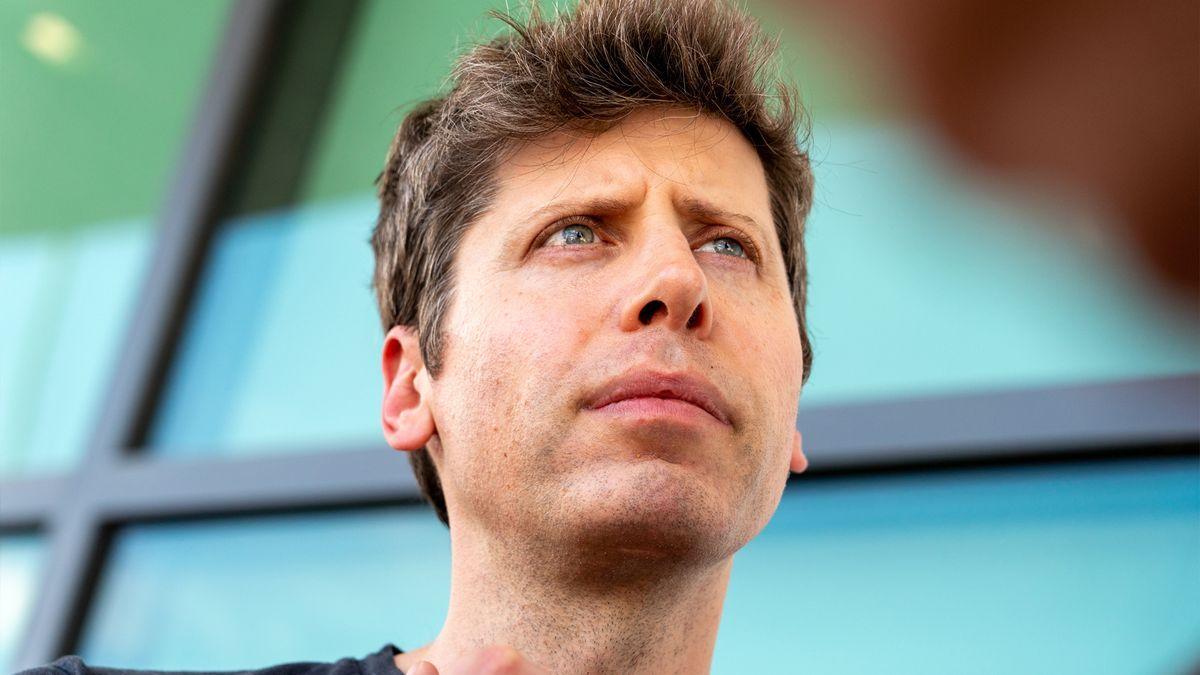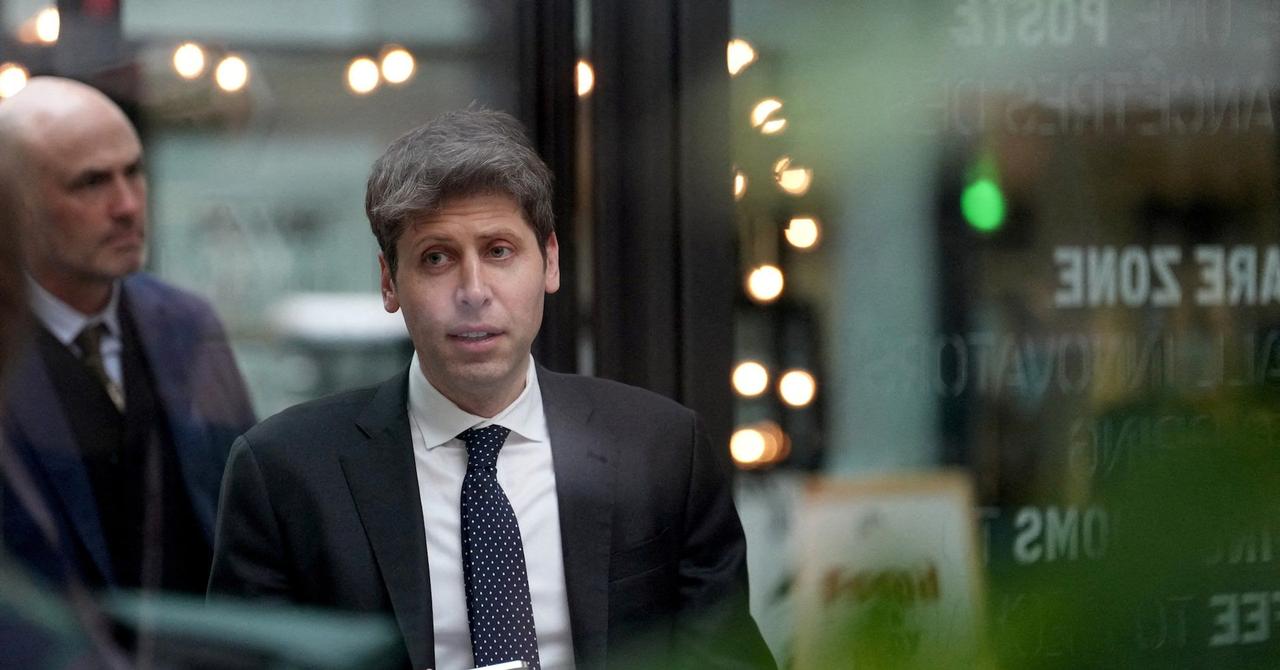TSMC Executives Reportedly Dismissed OpenAI's Sam Altman as 'Podcasting Bro' in Chip Venture Talks
2 Sources
2 Sources
[1]
TSMC execs allegedly dismissed OpenAI CEO Sam Altman as 'podcasting bro'
Scale of Sam Altman's proposed investment plans considered 'absurd' Last winter, OpenAI CEO Sam Altman took a whirlwind tour of the Far East, meeting with high-powered execs from companies like TSMC, Samsung, and SK hynix. However, we don't think he didn't make the best impression on his hosts when pitching his audacious plans. According to a report in the New York Times this week, senior TSMC execs allegedly dubbed the OpenAI chief a "podcasting bro" after the meeting(s). The NYT claims it discussed OpenAI's negotiations with nine people who were close to the discussions but who wish to remain anonymous. Altman used his multi-stop trip to pitch his plans to progress AI, involving Asia's manufacturing muscle, Middle Eastern money, and U.S. regulators. The NYT sources say that the scale of investment would be in trillions of dollars - similar in size to a quarter of U.S. annual output for a year. However, the latest OpenAI statements have rolled back such talk to "mere" hundreds of billions... Years of construction time would also be needed to satisfy the OpenAI compute scaling plans, it is reported. Moonshot dreams crash to earth at TSMC The OpenAI CEO is noted for his ambition. Perhaps Altman is right to have an abundance of confidence in his vision and moonshot-style plans, after taking just a few years to become one of the most influential names in tech. Nevertheless, his plans have allegedly not stirred confidence in the hard-nosed execs at TSMC. In the NYT report, it is claimed that during Altman's visit to Taiwan, he told TSMC execs that he envisioned a $7 trillion investment over several years. The result would be 36 new semiconductor plants and data centers driving AI forward. TSMC execs allegedly found Altman's ideas absurd, and according to one of the NYT's sources, the chipmaking execs would subsequently call Altman a "podcasting bro." Even implementing a fraction of the OpenAI CEO's ideas would be incredibly risky, the execs are said to have openly pondered. This dismissive attitude to OpenAI's ambition dovetails with a report we published this summer. During TSMC's 2024 Annual Shareholders' Meeting, newly elected chairman Dr. C. C. Wei was quoted as making several controversial statements. On the OpenAI CEO, Wei is quoted as saying "Sam Altman, he's too aggressive, too aggressive for me to believe." Altman also visited South Korea to talk with high-level Samsung and SK hynix representatives, at around the same time. However, negotiations were cut short by national security concerns, indicates the NYT, as back then, countries like the United Arab Emirates (UAE) maintained relationships with China. Things may be different for tech plans involving the UAE now, as earlier this week President Biden and Sheikh Mohammed bin Zayed, the Emirati president, met at the White House and directed their senior officials to develop a memorandum detailing future collaboration on AI. Earlier this week, we reported on the latest rumors regarding TSMC and Samsung mega factories in the UAE. The NYT highlights a lot of uncertainty about OpenAI's incredibly ambitious plans. Details about who would put in what, and what they would get from their investments remain hazy. However, firms such as the Emirates tech investment specialist MGX, plus household tech titans like Microsoft, Nvidia, and Apple were named as still being in talks with OpenAI. AI continues to be a money pit with no killer app OpenAI's business model, as it exists today, doesn't really inspire confidence, as it seems to exist on the promise of 'jam tomorrow.' Specifically, the firm has an income of approx $3 billion per year, but that is put in deep shade by its $7 billion in annual expenditure. Altman's grand plan seems to stem from his theory that AI is going to be like electricity. As AI becomes more readily available, people will find more and better ways to use it. But at the time of writing, leading tech companies like can't find a killer app for AI. Microsoft's Copilot gaffes and delays are well documented. Likewise, Apple launched its iPhone 16 and 16 Pro earlier in the month with a lot of talk about Apple Intelligence, but the first of these AI features won't be available on the new devices until next month.
[2]
TSMC rejects 'Podcasting Bro' Altman's $7 trillion fab plan | Digital Trends
OpenAI CEO Sam Altman may have the ear of seemingly every venture capitalist in Silicon Valley, but executives from Taiwan Semiconductor Manufacturing Company (TSMC) are far less impressed. Per a New York Times report from earlier this week, TSMC's leadership dismissed Altman as a "podcasting bro" and scoffed at his proposed $7 trillion plan to build 36 new chip manufacturing plants and AI data centers. The news comes after Altman's ill-fated PR tour of Asian chip manufacturers last winter when he met with Samsung and SK Hynix, in addition to TSMC, in search of investment for OpenAI's artificial general intelligence goals. According to the Times, TSMC's senior leadership derided Altman after his $7 trillion (that's trillion with a "T") request. Recommended Videos While Altman has not officially confirmed his pursuit of chipmaking capabilities, his apparent vision would eventually enable OpenAI to compete directly with both Nvidia and TSMC with in-house designed and fabricated chipsets. Reportedly, the investment would be spread across several years as the fabrication capacity is built out. But TSMC executives openly questioned how they would be able to mitigate the financial risks associated with such a plan. This isn't the first time that TSMC has thrown shade at OpenAI. During its 2024 Annual Shareholders Meeting, TSMC founder and CEO Dr. C. C. Wei characterized Altman as "too aggressive, too aggressive for me to believe." OpenAI has no shortage of potential investors, mind you. The company received $13 billion from Microsoft in 2023 and is reportedly closing in on another $6.5 billion round of funding that could close by the end of next week. The company is also rumored to be planning to effectively abandon its nonprofit business for a for-profit structure in an effort to make itself more attractive to investors. According to a report from the Wall Street Journal, despite OpenAI's stated $4 billion annual income, the company is losing nearly double that amount ($7 billion) every year. The fact that OpenAI's C-suite has become a revolving door of executives abandoning the company (CTO Mira Murati, CRO Bob McGrew, and senior research executive Barret Zoph, all resigned earlier this week) surely will not help assuage investors' concerns either.
Share
Share
Copy Link
TSMC executives allegedly dismissed OpenAI CEO Sam Altman during discussions about a potential chip-making venture, referring to him as a 'podcasting bro'. This incident highlights the cultural clash between traditional semiconductor industry and AI startups.

TSMC's Alleged Dismissal of Sam Altman
In a surprising turn of events, executives from Taiwan Semiconductor Manufacturing Company (TSMC), the world's largest contract chipmaker, reportedly dismissed OpenAI CEO Sam Altman as a "podcasting bro" during discussions about a potential chip-making venture. This incident, first reported by The Information, sheds light on the cultural divide between traditional semiconductor industry giants and emerging AI startups
1
.The Proposed Chip Venture
Altman, known for his role in leading OpenAI, had approached TSMC with a proposal to create a new chip-making company. The venture aimed to produce semiconductors specifically designed for artificial intelligence applications. Altman's vision included raising billions of dollars to establish chip fabrication plants, a move that would potentially challenge TSMC's dominance in the semiconductor market
2
.TSMC's Reaction and Industry Implications
The reported dismissal of Altman by TSMC executives highlights the skepticism faced by tech entrepreneurs when venturing into the highly specialized and capital-intensive semiconductor industry. TSMC's alleged reaction suggests a reluctance to engage with what they perceive as outsiders to their industry, even if those outsiders represent cutting-edge AI companies
1
.The Cultural Divide
This incident underscores the significant cultural and operational differences between the fast-paced, disruptive world of AI startups and the more traditional, infrastructure-heavy semiconductor industry. While AI companies like OpenAI focus on rapid innovation and software development, chip manufacturers like TSMC operate on longer timelines and require massive capital investments
2
.Related Stories
The Future of AI Chip Production
Despite the setback with TSMC, Altman's interest in chip production reflects a growing trend of AI companies seeking to develop custom hardware to support their increasingly complex models. This move towards vertical integration in the AI industry could potentially reshape the landscape of semiconductor manufacturing and AI development in the coming years
1
.Industry Reactions and Perspectives
The news of TSMC's alleged dismissal of Altman has sparked discussions within the tech community about the challenges of bridging the gap between software-focused AI companies and hardware-centric chip manufacturers. Some industry observers view this as a missed opportunity for collaboration, while others see it as a reality check for AI entrepreneurs venturing into unfamiliar territories
2
.References
Summarized by
Navi
[1]
Related Stories
OpenAI's Sam Altman Pursues Chip Independence with Secret TSMC Meetings
01 Oct 2025•Technology

OpenAI's Sam Altman Embarks on Global Fundraising Tour for Massive AI Infrastructure Expansion
04 Oct 2025•Business and Economy

OpenAI Eyes Potential $1 Trillion IPO Amid Massive Losses and Infrastructure Spending
29 Oct 2025•Business and Economy

Recent Highlights
1
ByteDance Faces Hollywood Backlash After Seedance 2.0 Creates Unauthorized Celebrity Deepfakes
Technology

2
Microsoft AI chief predicts artificial intelligence will automate most white-collar jobs in 18 months
Business and Economy

3
Google reports state-sponsored hackers exploit Gemini AI across all stages of cyberattacks
Technology





